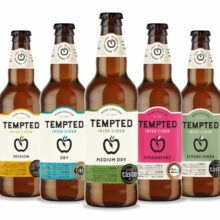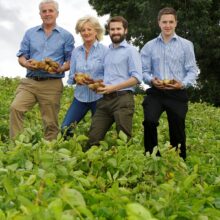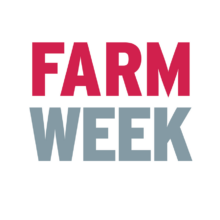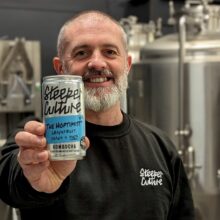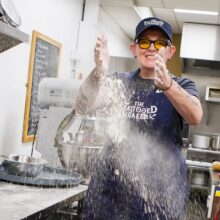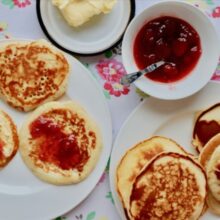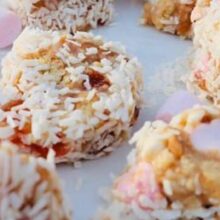Why Ken is a rising star in tasty breads
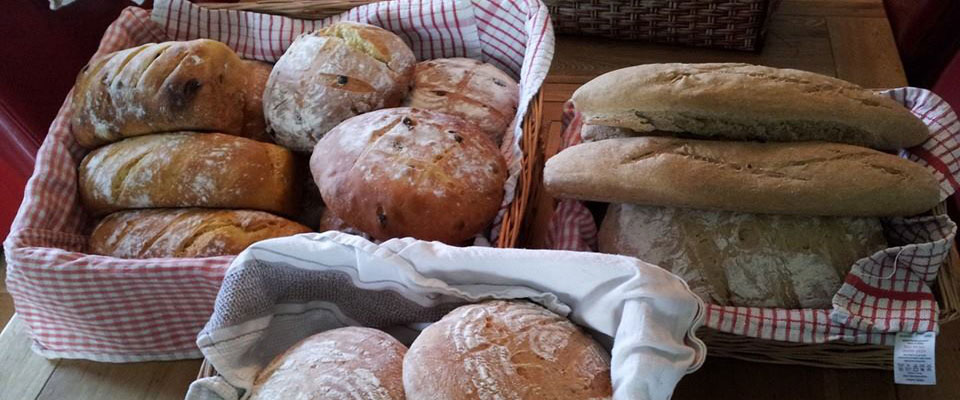
Sam Butler talked to Ken McNaull about his innovative micro bakery, Go Yeast, in Donaghadee. Article from Farmweek 28th January 2016
Ken McNaull left a successful and lengthy career in accountancy to pursue a passion for bread-making especially sourdough. He now runs an artisan bakery with wife Anne, Go Yeast, in Donaghadee. Anne has also developed patisseries including croissants, brioche and Copenhagens.
“I’d always been keen on cooking and food and became fascinated by various types of artisan breads,” Ken says. “I jumped at an opportunity to take this longstanding interest a stage further by setting up a micro bakery in Donaghadee,” he adds. “I needed to find our more about the process and in particular how to produce sourdough, a very different bread with a distinctively rich flavour.”
Sourdough is fundamentally a handcrafted bread which uses a ‘starter’ of combined flour and water fermented slowly over several days with regular additions of flour and water by the wild yeasts and lactobacilli naturally present in ground grain. The starter is then added to the baker’s dough, which is left to rest and rise for several hours. This produces delicious bread with a firm and springy crust.
Sourdough is regarded as being healthier because it is said to be more digestible than standard loaves and more nutritious. Lactic acids make the vitamins and minerals in the flour more available to the body. The acids slow down the rate at which glucose is released into the blood stream and lower the bread’s glycaemic index (GI), so it doesn’t cause undesirable spikes in insulin. They also render the gluten in flour more digestible and less likely to cause food intolerance.
Ken’s first step in his knowledge journey was to sign up for a three-month course at top chef Darina Allen’s internationally renowned Ballymaloe Cookery School near Cork. “This was my epiphany. The breakthrough helped me to realise the opportunity for artisan sourdoughs in Northern Ireland. The practical support and advice provided at Ballymaloe was excellent.
“I also met Andrew Whitley there and developed a friendship with him. His success in creating one of the UK’s first organic, artisan bakeries, the Village Bakery at Melmerby in Cumbria, was a huge influence on my thinking about my business. In addition, he launched naturally fermented sourdough breads.
Originally from Coleraine, Ken enhanced his culinary skills by working as a breakfast chef in a country house hotel in Co. Clare. He then joined an advanced bread-making course at the School of Artisan Food at Welbeck in Nottinghamshire. “It was an intensive course that covered all aspects of bread making including fermentation techniques and the use of wild yeasts which are found naturally in the air.”
Encouraged by his participation in the ‘Go for it’ business start up programme, Ken took the plunge into self-employment and set up the micro bakery in 2014. “All of the breads that I bake normally contain only four basic ingredients, flour, water, salt and yeast. There are no additives such as inhibitors, improvers or enzymes usually found in better-known breads.
“I also use nuts, seeds, fruits and grains. Oils and butter are sometimes added in small quantities. Traditional breads are made using fresh yeast or dried active yeast, I never use instant yeast, ” he explains.
The Go Yeast brand was the brainchild of Noah, his 16-year old grandson.
He is meticulous in the flour in his bread and uses only stoneground, organic products from specialist suppliers such as Shipton Mills in Gloucestershire and Dunany Farm near Dundalk. “Dunany is a traditional fourth generation family farm milling high standard, quality grain, particularly wheat, and a wholesome, nutty, coarse-grained flour. Their spelt and rye flours produce nutritious low gluten breads. I also use artesian water from Helen’s Bay Organic Farm and unpasteurised milk for some breads from an organic supplier in Kilrea, Co. Derry.”
He was helped by food technicians at Loughry Campus of the College of Agriculture, Food and Rural Enterprise in the development of his breads.
An enthusiastic supporter of the Real Bread Campaign and Real Bread Ireland, Ken now produces a range of sourdough, rye and malted products that he handcrafts and packages for distribution to local cafes such as the trendy Haptik in Newtownards. He developed a unique breakfast bread for Haptik with coriander, fennel and orange zest.
“I was attracted by the commitment of Real Bread to authentic products made without the use of any artificial additives. The campaign seeks, finds and shares ways to make bread better for us, better for our communities and better for the planet.
“Real Bread Ireland is a support network of real bread bakers and others whose aim is to encourage us all to eat better bread, whether we buy it or make it ourselves. It aims to see the standard and quality of bread raised throughout Ireland so that we can all have access to the very best bread possible, both nutritionally and in terms of taste,” he adds. “I am also watching an initiative by University College Dublin to promote ‘Heritage Breads’ as part of the focus in the Republic on innovation within the food industry.”

